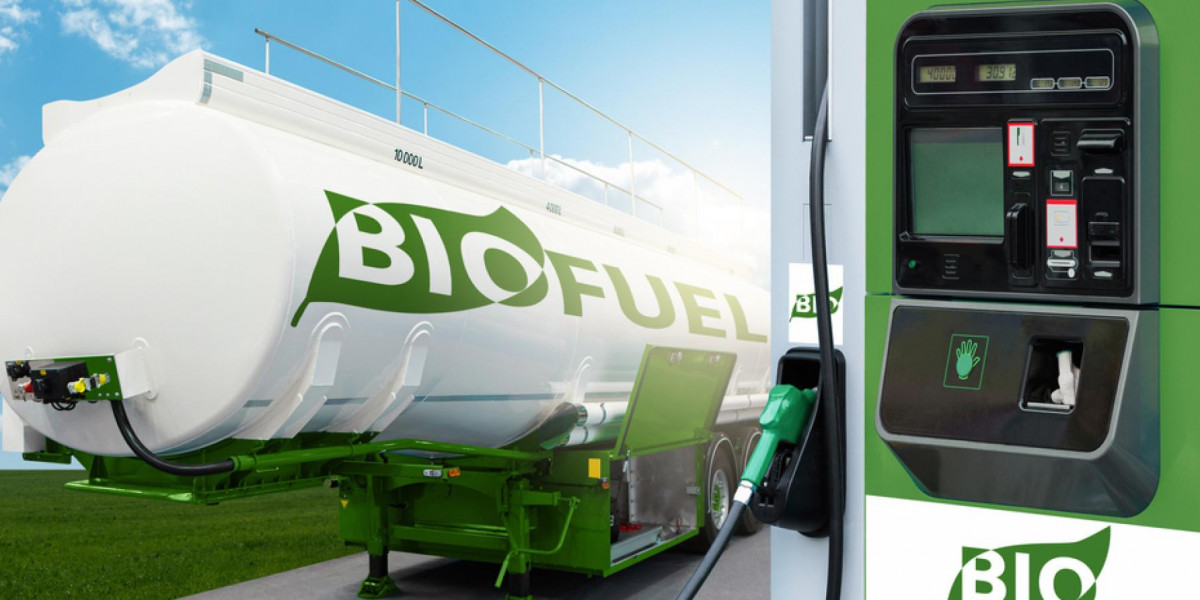The biofuels market has gained significant attention as a renewable energy source capable of reducing reliance on fossil fuels and contributing to global climate change mitigation efforts. Biofuels are derived from organic materials, such as plant-based crops, algae, and agricultural waste, and are considered a cleaner alternative to conventional petroleum-based fuels. However, despite the promise of biofuels, several barriers are impeding the market’s growth and widespread adoption. These barriers include high production costs, competition for feedstocks, technological limitations, environmental concerns, and policy uncertainties, all of which present significant challenges for both producers and consumers. Addressing these barriers is essential for realizing the full potential of the biofuels market.
1. High Production Costs
One of the most significant barriers facing the biofuels market is the high cost of production, which makes biofuels less competitive with conventional fossil fuels. Biofuels are often produced from crops such as corn, sugarcane, and soybeans, as well as advanced feedstocks like algae and agricultural waste. While the cost of biofuels has decreased in recent years, it remains higher than that of traditional fossil fuels, primarily due to the costs associated with feedstock production, processing technologies, and infrastructure development.
Feedstock Prices: The price of feedstocks plays a critical role in determining biofuels' overall cost. Crops such as corn and sugarcane, which are commonly used to produce biofuels, are subject to price volatility due to factors like weather conditions, market demand, and global agricultural trends. Price fluctuations can lead to significant instability in biofuel production costs, reducing the competitiveness of biofuels relative to fossil fuels.
Technological Costs: Advanced biofuels derived from non-food feedstocks, such as algae and agricultural residues, require more sophisticated and expensive processing technologies. Technologies such as gasification, enzymatic hydrolysis, and fermentation are still being optimized, making them costly to implement on a large scale. Until these technologies become more cost-effective, biofuels will struggle to compete with cheaper alternatives like gasoline and diesel.
Capital Investment: The infrastructure required for biofuel production, including processing facilities, distribution networks, and storage systems, is expensive. The need for substantial capital investment in infrastructure can deter new players from entering the market and limit the growth of the biofuels industry as a whole.
2. Competition for Feedstock
The competition for feedstock is another significant barrier in the biofuels market. Biofuels are largely derived from agricultural crops, which are also used for food production. This creates a direct competition between biofuel production and food production, leading to concerns about food security and rising food prices.
Food vs. Fuel Debate: The use of food crops like corn, soybeans, and sugarcane for biofuel production has sparked the food vs. fuel debate. The diversion of agricultural land from food crops to biofuel crops can lead to higher food prices and shortages in certain regions. This competition between food and fuel is a particularly pressing issue in developing countries, where food insecurity is already a concern.
Land Use and Water Resources: Biofuel production requires large amounts of land and water, which can exacerbate land use conflicts and water scarcity, especially in regions where these resources are already limited. The demand for biofuel crops can result in deforestation, land degradation, and increased competition for freshwater resources, which can negatively impact local ecosystems and communities.
3. Technological Limitations
While advancements in biofuel technology have made significant strides in recent years, there are still numerous technological barriers that prevent the industry from scaling effectively. The conversion of biomass into biofuels is a complex process, and many biofuel production technologies are not yet optimized for large-scale commercialization.
Low Conversion Efficiency: The efficiency of converting biomass into biofuels remains a significant challenge. Many first- and second-generation biofuels, such as those derived from corn or sugarcane, have relatively low conversion efficiencies, meaning that it takes a large amount of biomass to produce a small amount of fuel. Although second- and third-generation biofuels made from non-food feedstocks show promise, these technologies are still in the development phase and have not yet achieved high efficiency or commercial viability.
Energy-Intensive Production: Biofuel production, particularly for advanced biofuels, requires significant amounts of energy. This energy-intensive process reduces the overall sustainability and carbon efficiency of biofuels, especially if the energy required to produce biofuels comes from non-renewable sources. Until production technologies can be optimized to use less energy, biofuels will struggle to compete with cleaner alternatives.
4. Environmental Concerns
Although biofuels are considered a cleaner energy alternative to fossil fuels, their production and use are not without environmental concerns. The environmental impacts of biofuels vary depending on the feedstock used, the production methods, and the region where they are produced.
Deforestation and Land Use Change: Large-scale biofuel production can contribute to deforestation and land use changes, particularly in tropical regions. The clearing of forests to make way for biofuel crops leads to the loss of biodiversity, reduced carbon sequestration, and increased greenhouse gas emissions. This undermines some of the environmental benefits of biofuels, particularly when land-use changes result in a net increase in emissions.
Water Consumption and Pollution: The production of biofuels requires large amounts of water, which can strain local water resources, particularly in regions where water scarcity is already a concern. In addition, the use of fertilizers and pesticides in biofuel crop cultivation can lead to water pollution and soil degradation, further impacting the environment.
Carbon Emissions from Agriculture: While biofuels are considered carbon-neutral over their lifecycle, the cultivation of biofuel crops can result in carbon emissions due to the use of fertilizers, pesticides, and farming equipment. These emissions can offset some of the carbon savings biofuels provide when compared to fossil fuels.
5. Policy and Regulatory Uncertainty
The biofuels market is heavily influenced by government policies, subsidies, and regulations. However, inconsistent policy support and regulatory uncertainty pose significant barriers to the growth of the industry.
Fluctuating Policy Support: Governments around the world have implemented various incentives and mandates to support biofuel production. However, these policies can be inconsistent and subject to change, which creates uncertainty for biofuel producers and investors. The lack of long-term policy stability can undermine the confidence of companies in the biofuels market and discourage investment in new technologies and infrastructure.
Lack of Global Standards: The biofuels market is fragmented, with different countries and regions having varying standards and regulations. This lack of global harmonization complicates trade and increases costs for biofuel producers, limiting the market’s ability to scale. International trade barriers and the need for multiple certifications also make it difficult for biofuels to achieve widespread adoption on a global scale.
Conclusion
The biofuels market is facing significant barriers that hinder its potential for growth and large-scale adoption. High production costs, competition for feedstocks, technological limitations, environmental concerns, and policy uncertainty all contribute to the challenges that the industry must overcome. Despite these obstacles, the global shift toward renewable energy sources provides a significant opportunity for the biofuels market. With continued research and development, more efficient technologies, clearer policies, and sustainable practices, biofuels have the potential to play a crucial role in the global energy transition. However, addressing these barriers will require concerted efforts from governments, industries, and researchers to unlock the full potential of biofuels as a clean, sustainable energy source.
Learn more: https://www.pristinemarketinsights.com/biofuels-market-report








